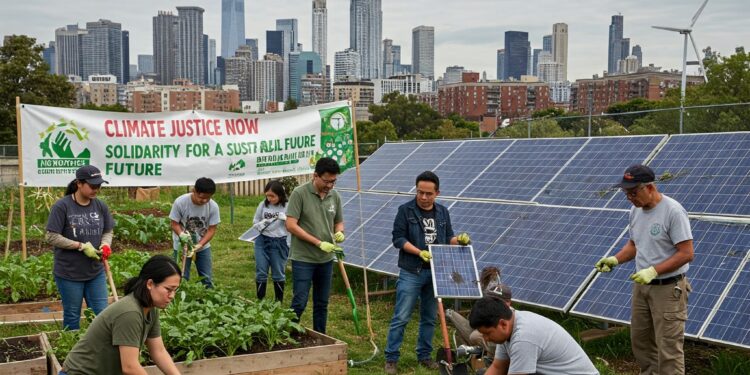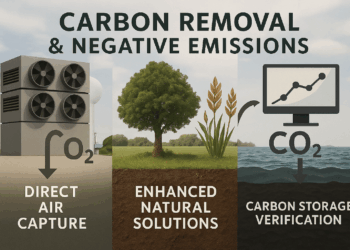Climate change is not a distant threat; it’s a present reality, and its impacts are felt most acutely by those least responsible. From rising sea levels displacing coastal communities to extreme weather events disproportionately affecting low-income neighborhoods and communities of color, the climate crisis exacerbates existing inequalities. In the face of these challenges, community resilience and solidarity are not just desirable; they are essential for survival and a just transition to a sustainable future.
One of the most powerful ways to build resilience is through local, grassroots action. Participating in community sustainability projects, such as community gardens, not only fosters a sense of collective responsibility but also strengthens local food systems and reduces reliance on long-distance transportation. Similarly, renewable energy cooperatives empower communities to take control of their energy supply, reducing dependence on fossil fuels and fostering economic independence. These initiatives create tangible benefits while building social bonds and a shared sense of purpose.
However, true solidarity demands that we stand in unwavering support of frontline communities – Indigenous groups, low-income populations, and people of color – who are disproportionately affected by climate disasters. These communities often face systemic barriers and have been historically marginalized, making them more vulnerable to the impacts of climate change. Amplifying their voices, advocating for their rights, and ensuring they have a seat at the table in climate policy decisions are crucial steps towards a just transition.
A just transition demands that the shift to a sustainable economy creates green jobs and ensures fair wages for all. As we move away from fossil fuels, it’s imperative that we invest in retraining programs and create new economic opportunities for workers in affected industries. This transition must be equitable, ensuring that no one is left behind and that the benefits of a green economy are shared by all.
Building community resilience and solidarity requires a multifaceted approach: local action, unwavering support for frontline communities, and a commitment to a just transition. It demands that we recognize our interconnectedness and work together to create a future where everyone has the opportunity to thrive in a healthy and sustainable environment. It’s about recognizing that we are all in this together, and only by uniting can we weather the storm and build a more just and resilient world.








